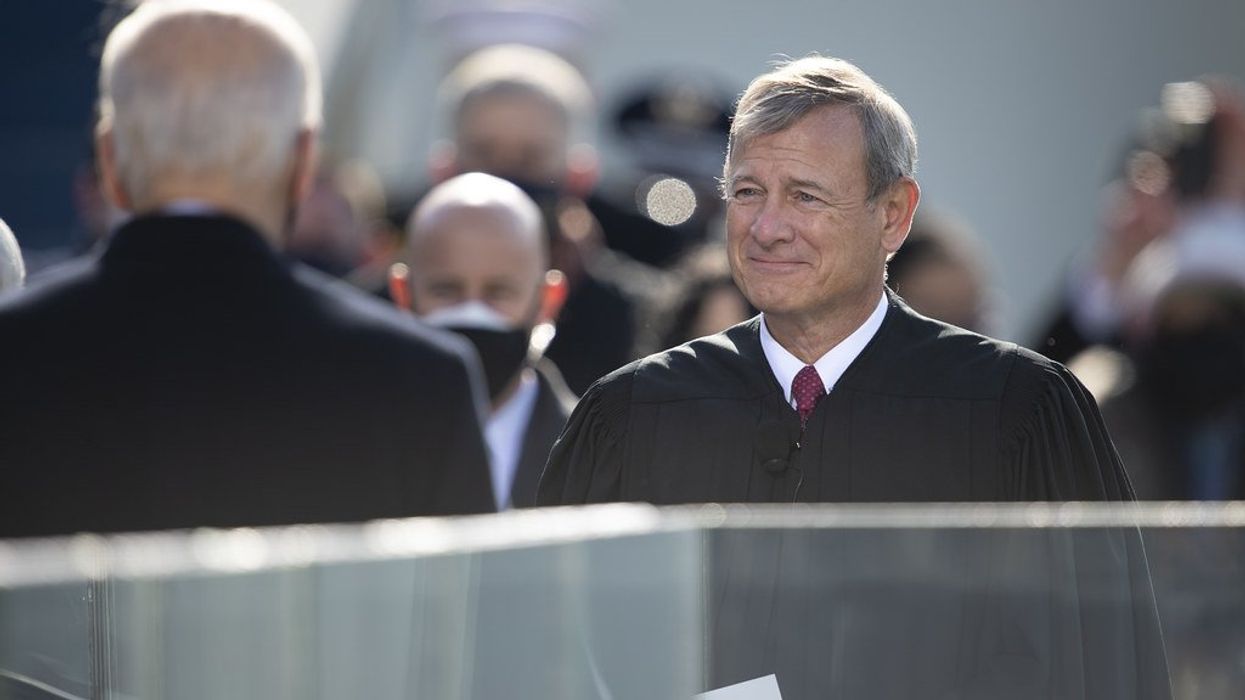In a Monday, October 16 analysis published by Vanity Fair, legal affairs contributor Cristian Farias argues that United States Supreme Court Chief Justice John Roberts' might be remembered for his allegiance to Republican causes, but it's "his affinity for dealmaking or vote switching, sometimes at the eleventh hour, for the sake of optics or preserving the Supreme Court's standing" that will "define is chiefship."
Farias notes that "Since becoming Chief justice of the United States in 2005, a job for which he pledged to be a neutral umpire calling balls and strikes, Roberts has walked a fine line in determining how far to push the law in the direction of his Republican priors."
However, "A young Roberts was even critical of the Supreme Court" at times, the correspondent emphasizes.
POLL: Should Trump be allowed to hold office again?
Now, Farias writes, "a concession that there's anything wrong with the institution he leads" can't be found in any of his "recent writings of public appearances" and he refuses to "address investigative reporting revealing that some of his colleagues are jet-setting with right-wing billionaires and accepting lavish treatments and vacations from them without regard for public disclosure laws and other ethical considerations."
Farias insists, "When judges begin to think they're a law unto themselves above and beyond any checks and balances, they're too far gone."
Although "Roberts may wish for things to return to normal and for his historically unpopular Supreme Court to no longer be in the eye of the storm," the correspondent suggests "settling cases and controversies that are central to our democracy—requires a healthy dose of political capital," and under his chiefship, "the least accountable, most unpopular institution in the country may soon be all out of it."
He points to Roberts' "devil-may-care attitude at the Supreme Court" displayed "in the closing lines of Biden v. Nebraska, his edict invalidating President Joe Biden's student-debt relief plan," in which he wrote, "It has become a disturbing feature of some recent opinions to criticize the decisions with which they disagree as going beyond the proper role of the judiciary. We do not mistake this plainly heartfelt disagreement for disparagement. It is important that the public not be misled either. Any such misperception would be harmful to this institution and our country."
READ MORE: Amy Coney Barrett backs ethics code for SCOTUS: report
This is "Roberts's way of saying: Don't shoot the messenger," Farias suggests.
The correspondent writes:
Roberts has remained a culture warrior for Republican causes—his weakening of the Voting Rights Act of 1965, his support for allowing corporations and other outside groups to spend limitless sums on our elections, and his first oral dissent protesting the landmark ruling enshrining a constitutional right to marry for same-sex couples will define his chiefship. But so will his so-called institutionalist tendencies—Roberts's affinity for dealmaking or vote switching, sometimes at the eleventh hour, for the sake of optics or preserving the Supreme Court’s standing.
Furthermore, despite the chief justice's few decisions in which "he crossed the aisle" politically, Farias emphasizes, "when faced with the Supreme Court's biggest crisis of confidence in a generation, thanks to bombshell after bombshell showing the justices’ proximity to Republican billionaires and power, the chief has had very little to show for it."
Farias' full analysis is available at this link (subscription required).


